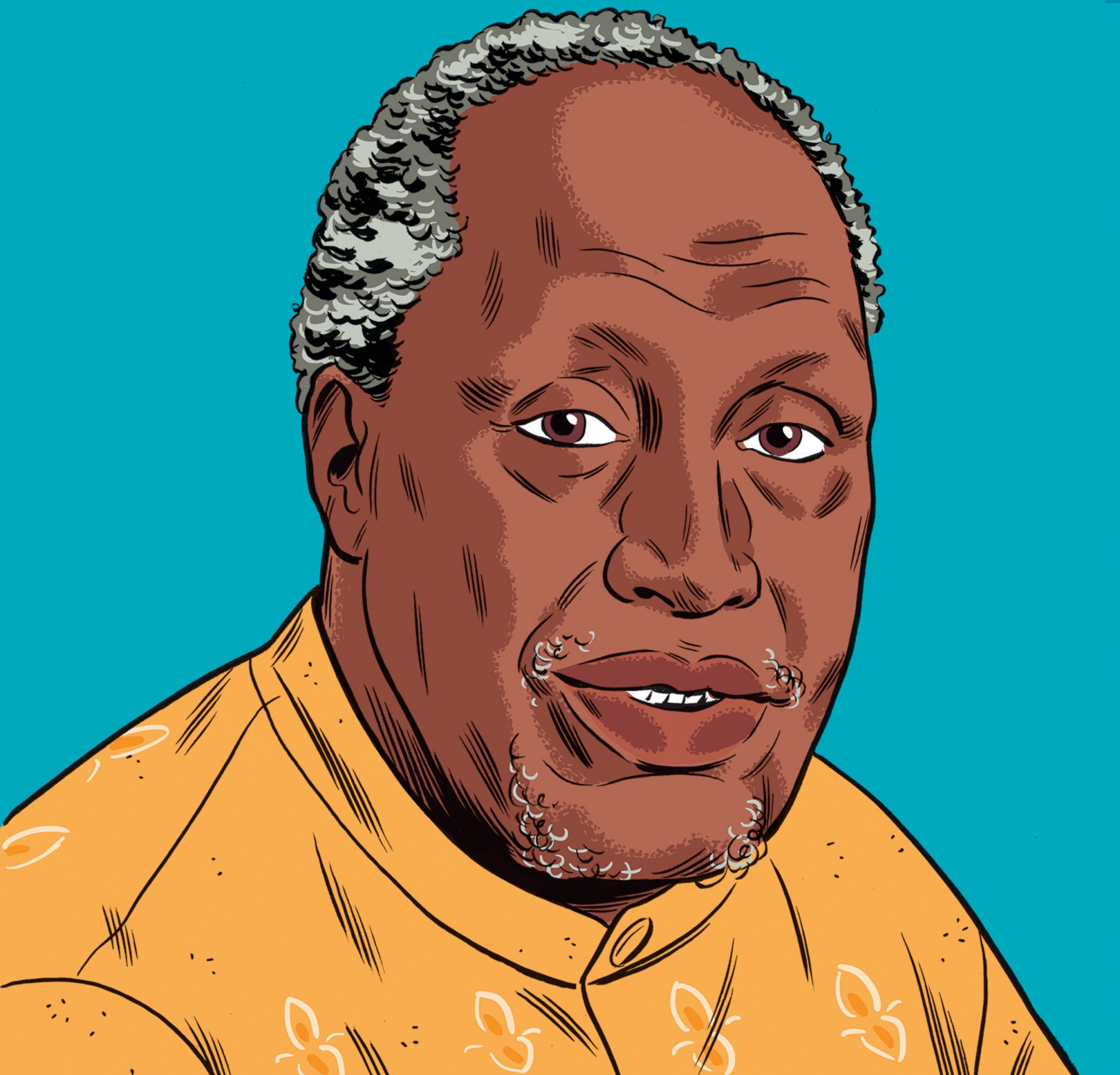
Ngugi wa Thiong’o was born in Kenya in 1938. A novelist, playwright, academic and essayist, he was imprisoned by the Kenyan government in 1977 and later went into exile in the UK and US.
What’s your earliest memory?
The sight of Italian prisoners of war visiting us in Limuru, asking for eggs. One day, they disappeared. Years later, I learned it was because the Second World War was over. They had returned home.
Who are your heroes?
As a child, Jomo Kenyatta. We used to hear so many stories about his exploits in London fighting for Kenyan people’s freedom. My late mother, Wanjiku, is my adult hero. I have always wondered how a woman who could not read or write came to dream of school for me. She passed the dream of education on to me.
What book last changed your thinking?
Half of a Yellow Sun by Chimamanda Ngozi Adichie. I can never think of the Biafran War without thinking of the characters in her novel.
Which political figure do you look up to?
Karl Marx. He really understood the workings of the capitalist system.
What would be your Mastermind specialist subject?
Power relationships between languages. Today the languages of the former imperial powers rule the world. English, French, Spanish and Portuguese have uprooted the elite of the formerly colonised from their languages, and hence their peoples. The unequal power relationship between languages is a global phenomenon and needs a global response.
In which time and place, other than your own, would you like to live?
I would like to live in an Africa fully in control of its economy, politics, languages, culture and identity. I hope I live long enough to see it.
What TV show could you not live without?
I really like The Rachel Maddow Show on MSNBC. She is a storyteller. She presents her material as narratives. She grips my attention, even when analysing complicated issues of the day. My dream is to appear on her programme.
What’s your theme tune?
“Macegera” by Kwame Rigii, a singer from Kenya. You can find him on YouTube.
What’s the best piece of advice you’ve ever received?
“Tackle the five tasks in front of you/Before another five pile on you/Making them ten too heavy to tackle.” This is from Njeri wa Wachanga, a small farmer and retired teacher in Kenya. When I follow her advice, things work out well. When I don’t, things do indeed pile on me.
What single thing would make your life better?
Writing the elusive novel that haunts me.
When were you happiest?
Working with the people of Kamirithu in community theatre to produce Ngaahika Ndeenda (“I Will Marry When I Want”) in 1977. For my efforts, I was later hauled into prison, where I wrote my first novel in Gikuyu, Caitaani mutharaba-Ini (“Devil on the Cross”) on toilet paper.
In another life, what job might you have chosen?
Composer. I am mesmerised by all the creators of melodies. How are they able to organise sounds to lift our souls to heights unknown?
Are we all doomed?
Not doomed, but maybe groomed by hope to make a new heaven on a new earth.
“The Perfect Nine” by Ngugi wa Thiong’o is published by Harvill Secker
This article appears in the 06 Jan 2021 issue of the New Statesman, Out of control






